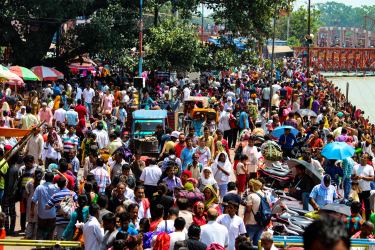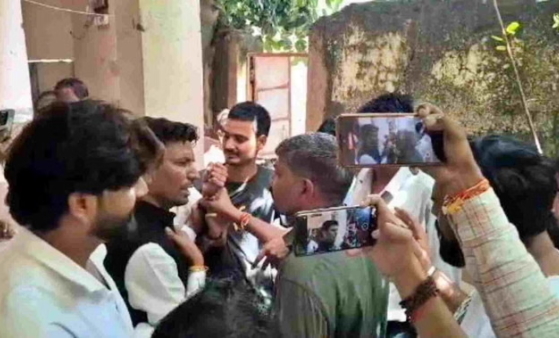
Union Minister Kiren Rijiju has triggered a political controversy after claiming that India is the only country where minorities receive more benefits and protections than the majority community. The Minister for Parliamentary Affairs and Minority Affairs made the statement in a social media post linking to an Indian Express interview, prompting sharp criticism from opposition politicians and civil society.
The Arunachal Pradesh MP’s remarks drew immediate backlash from AIMIM president Asaduddin Owaisi, who posted a cutting response on X. “You are a Minister of the Indian Republic, not a monarch. You hold a constitutional post, not a throne. Minority rights are fundamental rights, not charity,” Owaisi wrote.
The Hyderabad MP challenged Rijiju’s characterisation of minority treatment, citing instances of hate speech and violence. “Is it a ‘benefit’ to be called Pakistani, Bangladeshi, jihadi, or Rohingya every single day? Is it ‘protection’ to be lynched?” Owaisi asked, concluding that India’s minorities are now treated as “hostages” rather than second-class citizens.
Rijiju responded by questioning why minorities from neighbouring countries prefer to migrate to India whilst Indian minorities do not leave. “How come Minorities from our neighbouring countries prefer to come to India & our Minorities don’t migrate? Prime Minister Narendra Modi’s welfare schemes are for all. The schemes of the Ministry of Minority Affairs provide additional benefits to the Minorities,” he posted.
Owaisi fired back, stating that minorities’ decision not to migrate reflected their resilience rather than contentment. “If we don’t migrate it means we are happy. Actually, we are not in the habit of fleeing: we did not run away from the British, we did not run away during partition,” he wrote, urging the government to stop comparing India with “failed states like Pakistan, Bangladesh, Myanmar, Nepal & Sri Lanka.”
The exchange escalated as Owaisi highlighted specific policy concerns, including the Waqf Amendment Act, which he claimed allows non-Muslims to form majorities on Waqf Boards. He accused the BJP-led government of discontinuing the Maulana Azad National Fellowship and defunding scholarships that benefited Muslim students.
Social media users joined the debate, with critics pointing to incidents of violence against religious minorities. One user sarcastically shared news clippings of attacks against Christians and instances of cow vigilante violence, captioning it “A glimpse of minorities getting more benefits and protection in India as per Kiren Rijiju.”
Journalist Greeshma Kuthar referenced the ongoing ethnic violence in Manipur, tweeting: “Yes, that’s what happened in neighbouring Manipur where your party is ruling. That’s why Kuki-Zo people cannot step into the capital of their own state.”
In a subsequent Indian Express interview, Rijiju defended his ministry’s record, stating that minority communities receive more government funds and support than the majority Hindu community. “Whatever the Hindus get, the minorities also do. But what the minorities get, the Hindus don’t,” he said.
The minister highlighted achievements including increased scholarship disbursements, infrastructure development through the Pradhan Mantri Jan Vikas Karyakram, and improvements to the Hajj programme. He defended the Waqf Amendment Act as a transparency measure, claiming it underwent “one of the most inclusive and rigorous consultative processes in recent legislative history.”
The current controversy builds upon Rijiju’s past statements on minorities in India. In March 2025, speaking at a regional review meeting in Kerala, he declared that minorities in India are the “luckiest people” globally, dismissing allegations of discrimination as “false narratives.” He emphasised that “special schemes and welfare programmes are dedicated to minority communities, which is not seen anywhere else in the world.”
Subsequently, in April 2025, whilst defending the Waqf Amendment Bill in Parliament, Rijiju had asserted that “there is no place in the world safer than India for minorities,” attributing this safety to the secular nature of the majority community. He cited examples of persecuted minorities from neighbouring countries seeking refuge in India, including the Dalai Lama and Tibetan community, and minorities from Pakistan, Bangladesh, Afghanistan, Myanmar and Sri Lanka.
“Minorities of Bangladesh, Pakistan and Afghanistan came to India after facing religious persecution in their respective countries. How can you say that minorities are not safe in India,” he had argued during the parliamentary debate, adding that minorities in India are safe because “the majorities of the country are fully secular.”




